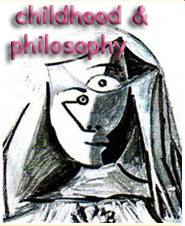an “analytic” commentary on gert biesta’s presentation: “touching the soul: education, philosophy and children in an age of instrumentalism”
DOI:
https://doi.org/10.12957/childphilo.2017.29945Keywords:
persons-in-the-world, self-awareness, conceptual analysisAbstract
In this paper, I first summarize what I take to be the main points of Biesta’s presentation, and proceed to offer some criticisms from the perspective of analytic philosophy. I propose an alternative framework for viewing the self as subject in the world which is both more transparent and conceptually more intuitive than the one proposed by Biesta. Among other advantages, this framework accounts for the central place of dialogue and communal inquiry, both key components of Philosophy for Children.
Biesta’s focus is the child as subject who is in the world from the beginning, so to speak, rather than as subject who constructs that world. Rightly critical of much contemporary jargon surrounding education – including its obsession with measurable learning outcomes – Biesta’s skepticism about constructivism leads him to question the emphasis on thinking that has been part of Philosophy for Children from its formation. I question his claim that this emphasis pays too much attention to “the head” at the expense of “heart” and “soul”. I suggest that Biesta has constructed a “straw-person” in his criticisms of p4c, by proposing, for example, that instead of teaching children to ask questions, it is the teacher’s task to assist children to see themselves as being in question. I acknowledge his depiction of good teaching as a process of interrupting children’s subjective pursuit of their desires – whereby they make the transition to what is desirable, but suggest, first, that the idea of interruption can also be understood as a process of making things unsettled for children and, secondly, that in his determination to find the “middle ground” between allowing persons as subjects to “annihilate” the world, and allowing the world to annihilate them, he fails to articulate a clear conception of self-awareness. I cite the work of the analytic philosopher Donald Davidson who provides a triangular view of self-awareness as being mutually dependent upon both each person’s awareness of others (i.e. other persons) and our shared awareness of the world.



